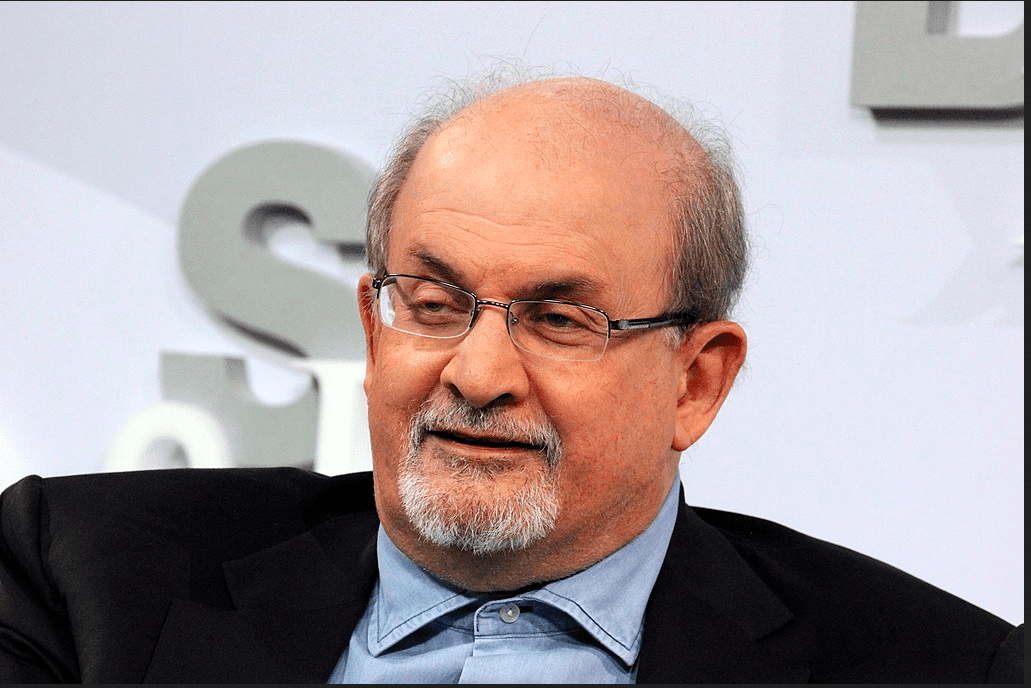
A day after being stabbed during an event at the Chautauqua Institution, The Satanic Verses author Salman Rushdie was taken off a ventilator on Saturday. While his condition is still critical, he was able to talk, his agent told AP.
On Saturday, the man accused of stabbing him multiple times, Hadi Matar, pleaded not guilty to charges of attempted murder and assault. Nathaniel Barone, the public defender assigned to the 24-year old entered the plea on his behalf during a formal hearing at a New York court.
Hadi Matar had been “very cooperative” with authorities after being arrested, his lawyer said, adding that Matar was open in communicating with him, but did not reveal what they had discussed.
A judge ordered Matar to be held without bail after District Attorney Jason Schmidt demonstrated Matar was at the event for the express purpose of harming Rushdie. To that end, he acquired an advance pass, arriving a day early with a fake ID. “This was a targeted, unprovoked, pre-planned attack on Mr. Rushdie,” Schmidt said.
Nathaniel Barone complained that authorities had taken too long to get his client in court while leaving him “hooked up to a bench at the state police barracks,” citing Matar’s “constitutional right of presumed innocence.”
Matar is due back in court on Friday.
For over 30 years, the world-famous author was the target of a fatwa over his 1988 work The Satanic Verses. It has since been banned in Iran and other countries, as many Muslims consider it to be blaspheme against the Prophet Muhammad. The fatwa was originally issued by the late Iranian Supreme Leader Ayatollah Khomeini, who died in 1989.
Later, the Iranian government distanced itself from it, at least pro forma. However, in 2012 a semi-official Iranian religious foundation raised the bounty for Rushdie from $2.8 million to $3.3 million. In the intervening years, various translators and publishers of The Satanic Verses have been either wounded or killed.
In the aftermath of the attempt on the 75-year-old’s life, leaders and writers have come out with messages of support while championing free speech.
Outgoing UK prime minister Boris Johnson tweeted he was appalled that Rushdie had been attacked “while exercising a right we should never cease to defend.”
Appalled that Sir Salman Rushdie has been stabbed while exercising a right we should never cease to defend.
— Boris Johnson (@BorisJohnson) August 12, 2022
Right now my thoughts are with his loved ones. We are all hoping he is okay.
Conservative politician Rishi Sunak, who is a candidate for succeeding Johnson as PM, labeled the attack a “wake-up call on Iran.”
To France’s prime minister Emmanuel Macron, Rushdie has been the embodiment of “freedom and the fight against obscurantism. He has just been the victim of a cowardly attack by the forces of hatred and barbarism. His fight is our fight; it is universal. Now more than ever, we stand by his side.”
For 33 years, Salman Rushdie has embodied freedom and the fight against obscurantism. He has just been the victim of a cowardly attack by the forces of hatred and barbarism. His fight is our fight; it is universal. Now more than ever, we stand by his side.
— Emmanuel Macron (@EmmanuelMacron) August 12, 2022
French satirical magazine Charlie Hebdo, which suffered an Islamist attack in 2015 and cost the lives of 12 employees, said that “nothing justified a fatwa.”
"Il va falloir répéter encore et encore que rien ne justifie une fatwa. De quel droit des individus, dont on se fout totalement de savoir qu’ils sont des religieux, s’arrogent le droit de dire que quelqu’un doit mourir ?" #SalmanRushdie https://t.co/XCoQJTVIQN
— Charlie Hebdo (@Charlie_Hebdo_) August 12, 2022
The most famous writer to comment on the Rushdie affair, author of the Harry Potter books J.K. Rowling, received a death threat for her troubles. A Twitter user had sent her a message which said “don’t worry you are next.” In response, Rowling tagged Twitter’s support account, saying: “Any chance of some support?” The author later informed her followers that police had been contacted and were investigating the threat.
Meanwhile, Iran’s state-controlled media have praised the attacker’s efforts.
“Congratulations to this brave and duty-conscious man who attacked the apostate and vicious Salman Rushdie,” newspaper Kayhan published. “Let us kiss the hand of him who tore the neck of the enemy of God with a knife.”
However, while some Iranians join in praising him, some fear that Matar’s actions would hurt Iran’s diplomatic efforts, isolating it even further. “This will negatively affect relations with many—even Russia and China,” said Mahshid Barati, a 39-year-old Iranian geography teacher. It remains to be seen to what extent the possible reviving of the Iran nuclear deal would be impacted.
